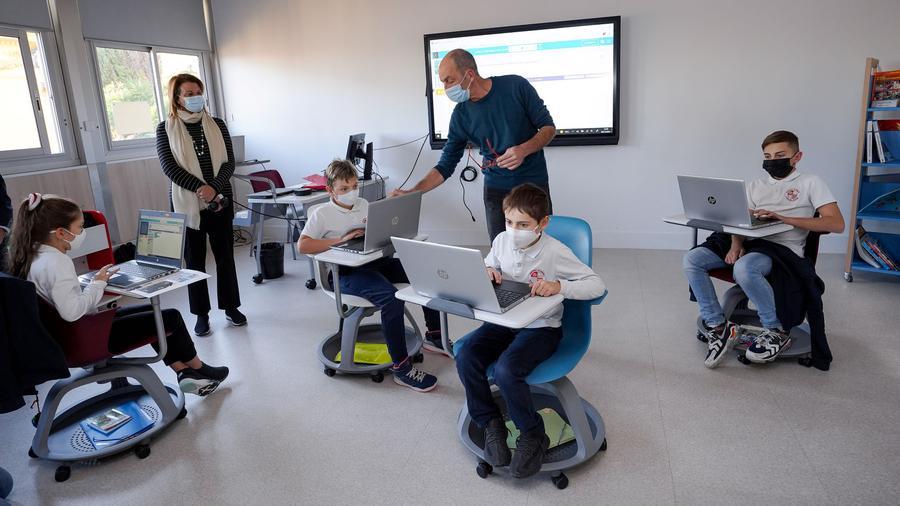Monaco schools are now benefiting from several ways to stay competitive in today’s world, including primary school computer programming courses and laptops with touchscreen capabilities for older kids.
A study by the Institute for the Future and Dell Computers estimates that an astounding 85% of jobs that will be available in 2030 have not even been created yet.
Such is the digital world we live in now, and as part of Computer Science Week, schools in the Principality are preparing children to face this new world with confidence, thanks to programmes being implemented under the Extended Monaco umbrella.
“The quality of the Monegasque education system is a priority for government action. In the era of the digital revolution, we have a duty to prepare the new generations for the challenges of tomorrow’s world, but also to help them understand new technologies in order to maintain control,” said Christophe Prat, Director General of the Department of the Interior.
The Extended Monaco programme has put into action several concrete plans for the digitisation of schools, such as implementing programming courses from primary school, signing a partnership with the American association code.org, offering learning tools like laptops to teachers and students under the Digital College initiative, and opening the EduLab space at Charles III College in 2019.
Located underneath the Department of Education, Youth and Sport, EduLab offers a 200 m² space where teachers can obtain training from experts in digital technology and experiment with innovative digital tools like virtual reality headsets, the latest laptops, educational robots, and the like.
Under the Digital College plan, 1,200 laptops have been distributed since 2020 with all the software and associated textbooks chosen by educators. The initiative is meant to promote educational creativity and better student learning, as well as ensuring continuity outside the class and enabling children to remain constantly exposed to digital advances.
The pandemic and associated lockdown periods also showed the sense in using technology in daily life, as remote schooling became a necessity. Now that teachers and students are used to the systems, it is possible for students who are ill or otherwise unable to attend school for periods of time to continue learning along with their peers. It also allows parents greater access to homework assignments and progress without the need for constant face-to-face meetings with teachers.
“Children and parents today expect the same services in education as they benefit from in their daily life: consulting online notes, homework or schedule changes, discussing remotely with the teacher, completing online processes … With digital technology, we can respond effectively to the educational needs of students and facilitate the personalisation of learning paths,” says Commissioner General in charge of the Directorate of National Education, Youth and Sports, Isabelle Bonnal.
Training has also been at the heart of this revolution. All high school students receive six hours of digital literacy training each week. The teaching teams are also supported by experts to make the best use of these tools, for the benefit of student success.
Thanks to EduLab, the faculty has access to innovative tools such as virtual reality headsets, touch screens, educational robots or 3D printers. Digital technology also helps foster the involvement of parents, notably through the establishment of dedicated webinars and virtual guides.
“The education system must be in line with the challenges of the world of work of tomorrow. To develop a strong and attractive economy in the coming years, we need trained youth, open to the outside world and familiar with new technologies,” said Frédéric Genta, Interministerial Delegate in charge of Digital Transition.
Admin has also been made easier, as parents now have the option to enrol their children in school online as well as pay for canteen digitally. These procedures are available on the new public service portal MonGuichet.mc.
Students of the Monaco Technical and Hotel Lycée will be equipped with personal computers next year. In 2022, the training for students will also be expanded, with more hours of learning provided, but they will also receive a societal approach to help them better understand their future in a world that has become resolutely digital.
Photo by Michael Alesi, Government Communication Department
Monaco schools in the digital age
